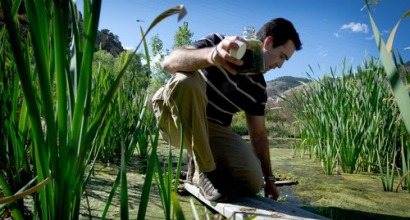
These would include tropical rainforests. Other areas eyed for protection include carbon-rich peatlands
“We need to make sure that the entire bio-fuels’ production and supply chain is sustainable,” said Günther Oettinger, the EU’s Commissioner for Energy. “The schemes recognised on the EU level today are a good example of a transparent and reliable system which ensures that these high standards are met.”
Bio-fuels are considered a potent alternative to the unsustainable use of fossil fuels. But where rainforest slash-and-burn gives way to oil palm plantations, which is the case in many parts of the developing world, bio-fuel is seen as something less than an environmentally friendly alternative.
The EU has set itself an objective to achieve a minimum share of 10 percent renewable energy in transport by 2020.
Companies can now choose whether to demonstrate compliance with these sustainability requirements through national systems or by joining a voluntary scheme which is recognised by the Commission.
When the Commission has thoroughly checked a scheme against the sustainability requirements and is satisfied that it adequately covers the sustainability requirements of the Renewable Energy Directive 1, it will give its recognition for five years.
Such a scheme verifies where and how the biofuels are produced. If the rules of the voluntary scheme have been met, the scheme can issue a certificate for that product.
In all 25 voluntary schemes were considered by the Commission, which ultimately chose to endorse the following:
•ISCC (German (government financed) scheme covering all types of biofuels);
•Bonsucro EU (Roundtable initiative for sugarcane based biofuels, focus on Brazil);
•RTRS EU RED (Roundtable initiative for soy based biofuels, focus on Argentina and Brazil);
•RSB EU RED (Roundtable initiative covering all types of biofuels);
•2BSvs (French industry scheme covering all types of biofuels);
•RSBA (Industry scheme for Abengoa covering their supply chain); and,
•Greenergy (Industry scheme for Greenergy covering sugar cane ethanol from Brazil).
For additional information
European Commission statement on bio-fuel sustainability schemes

